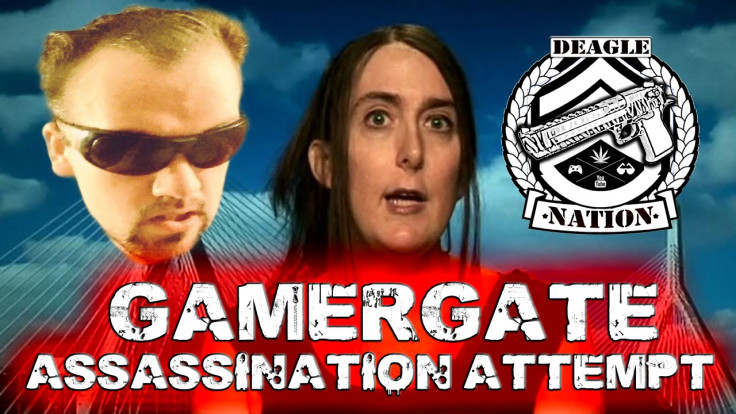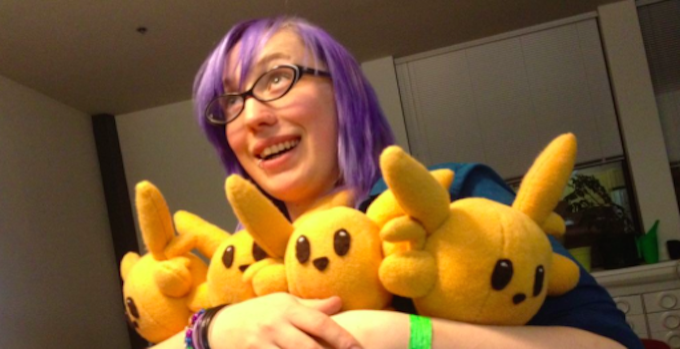GamerGate abuse is rooted in insecurity

There were some people criticising me via Twitter recently because of an article I wrote. Their remarks would pop up, some nuanced, some nasty, and I'd click on them and select either "mute", which would stop their comments appearing in my news feed, or "block" which would prevent them from contacting me entirely.
It was a kind of prissy game of whack-a-mole, where I'd slap down online responders – some of whom had fair enough points to make – simply because I didn't want to deal with what they were saying.
It reminded me of what Louis CK said about today's young people: "The worst thing happening to this generation is that they're taking discomfort away from themselves." I agree with that. And I feel guilty about shielding myself from criticism, simply because I could.
But on the contrary, "blocking" people on the internet seems a decent reproach against the no-discomfort-please mentality. People have gotten too used to shouting down anything they don't want to hear, and I like reminding them, in my small way, that their dissatisfaction isn't important.
You look at GamerGate, and how young men attempted to destroy women in the gaming industry via online abuse.
That had nothing to do with "ethics in journalism," or any other important-sounding rubric.
It was merely men lashing out at something they found intimidating, namely, the idea of a world where female humans have the same rights as male ones.
And that anger – that kind of wilful, hand-biting ignorance – motivates the vast quantity of online "conversation." It's nothing to do with criticism, debate, or any of the smuggle-through-customs terms people like to use.
It's just fear – it's the internet equivalent of someone putting his hands over his ears and going "la la la la la."
And it's because people can't stand to know they're insignificant. It's why we have gated communities, consumer rights TV shows, those little feedback cards in family bistros – everybody wants to feel important.
No-one likes the thought that, eventually, they'll die. No-one likes the thought that eventually everyone who knew them will die. And no-one likes to think that when that happens, the world, wholly indifferent, will continue as normal.
'I hate GamerGaters. I hate them all. But I also want to kind of get them by the shoulders and say "I get it." I get that you're scared.'
And so, people rant and rave and stamp their feet and try to make themselves heard. They block out discomfort not because something is genuinely upsetting to them, but because knowing that they can block out – that they have the power to shout down at least something – is a reassurance. It makes them feel like the world cares, like it notices, like other people have recognised them somehow.
I keep saying "they," but I do this and you do this and my friends do this. In large or small ways, we all does this, because we're all, essentially, deeply insecure.
But there are divisions – there are leagues. I can mute the occasional person on Twitter and feel like, "ahh, okay, I do have some semblance of control over my world – at least one little finger on the steering wheel." But then you go up a few rungs and you have these people, like the GamerGaters, who rather than deal with their insecurities in a private, small kind of way, draw them like a revolver and point them at the world.

I hate them. I hate GamerGaters, internet commenters and the people who went after Zelda Williams. I hate them. I hate them all.
But I also want to kind of get them by the shoulders and say "I get it." I get that you're scared. I get that it hurts, the knowledge that not only will you and all your friends one day be dead, but the very universe you existed in will collapse from the inside. I get that it's not easy – I get that you want to feel like you can do something, anything, that'll leave a You-shaped mark in the world.
I get it. But shut the hell up.
Be discreet. People will notice you
Shut the hell up, first because your insecure, online invective is ruining people's lives, and second, because if no-discomfort culture really is rooted in self-doubt, yelling at the world isn't going to help. If you want to leave an impression on the world, or simply on the other people around you, you can do it pretty well by being quiet.
People respect silence. They respect dignity. They respect when you don't blab about every small moment of discomfort. And above all they respect intelligence, and intelligence is earned by listening and imbibing and not drowning out with your own noise nuanced ideas that are contrary to your own.
You don't become a better, impressive or memorable person by shielding yourself from discomfort. You become the cheap, modern-day equivalent of a Persian God-king, a tantrum-thrower people want to ignore, a voice history will forget.
I truly think this trend of eradicating discomfort from our lives, made so easy by both the internet and obsequious corporations, is rooted in insecurity. But we must realise that the less willing we are to engage with the world, in its myriad good and bad forms, the less relevant to the world we are.
© Copyright IBTimes 2025. All rights reserved.






















